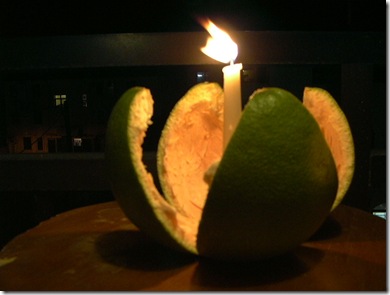媽媽八十八 :: mom at 88
Our whole family celebrated my mother's 88th birthday last night. I was perhaps the most excited person on the spot, since I hadn't been able to take part in this celebration over the past few years when I was away from home. I presented to her a priceless gift -- a small paragraph from my PhD thesis, framed. (See below for content.)
........................................
昨天農歷八月二十日,家母生日。
一家人上館子大吃大喝,媽也大吃。(感激大家姐和大哥的安排,超豐富的。)
如果近年的『歷史重構』沒有錯誤的話,老媽應該是八十八歲了。Amazing!
這幾年老媽生日,我都不在香港,所以昨晚其實我的感覺最特別、最興奮,可能家人都沒留意。
我還煞有介事的預備了一份『秀才人情』,是把我的博士論文前言部份的最後一段,加上中文撮譯,印出來,框起來,送給媽媽。此刻無價。
謹公諸於世:
_______________________________________________________________
While my mother may not fully understand what I study, I nonetheless owe my earliest exposure to film, media, and theology to her. My earliest memory of cinema-going was watching a foreign film with her, and I can still remember its translated Chinese title was 《霸海奪金鐘》; she bought our first television set at home, on which I watched numerous old Cantonese films; and when I asked how the world came into existence, 'created by God' was her answer even though she was not a practising believer of any religion at that time. I am thankful that, despite her gradually deteriorating physical health in recent years, she is able to witness the endpoint of my doctoral study.
To my beloved mother, Madam Leung Ching Chun, I therefore dedicate this thesis.
extracted from page vi in Yam Chi-Keung's Doctor of Philosophy thesis completed at
the School of Divinity, the University of Edinburgh, 2008
********************
家母或許對我所讀的未必完全了解,卻是最先讓我接觸電影、傳媒、和神學的第一人。我對戲院的最早記憶,是跟她去看一部中譯《霸海奪金鐘》的外語片。家裡第一部電視機是她買的,從中我看了無數舊粵語電影。她那時雖然不信仰任何宗教,竟跟童年的我說,世界是上帝創造的。近年她的身體健康縱使漸不如前,仍能見證到我這博士研究的終點,為此我感恩無盡。
如是,謹將此論文敬獻給摯愛的母親 — 梁靜珍女士。
摘自任志強於2008年在愛丁堡大學神學院完成的哲學博士論文,第vi頁
______________________________________________________________________________









